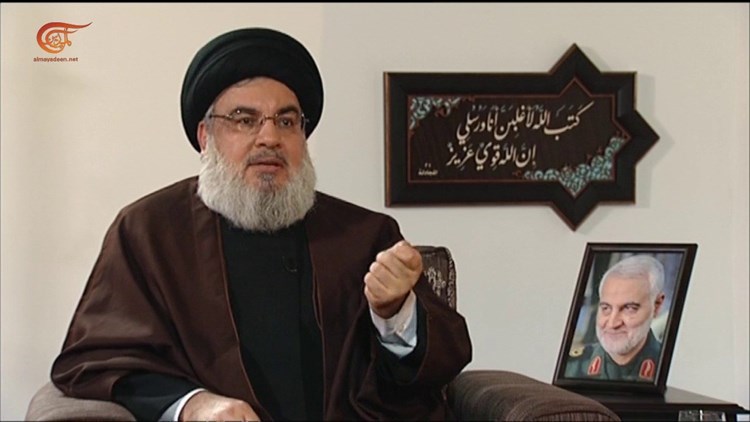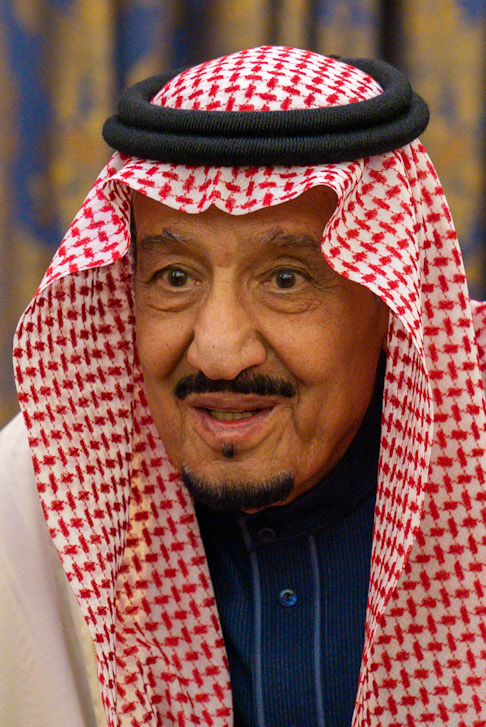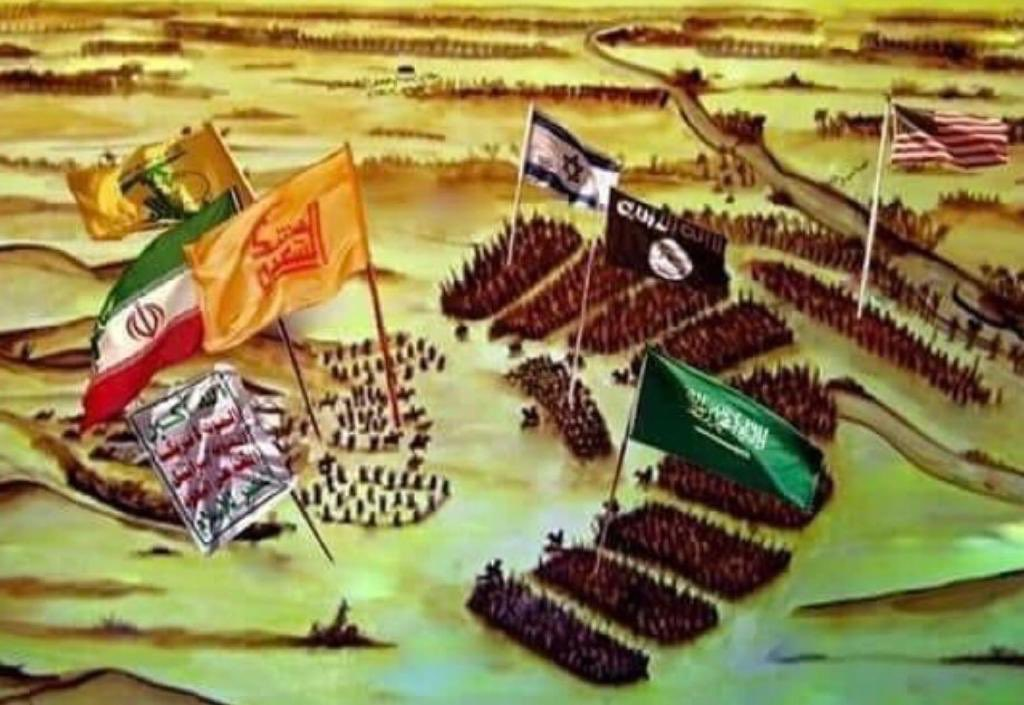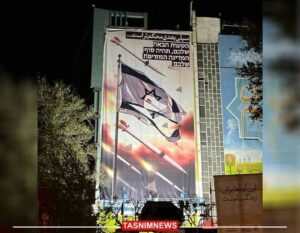Saudi Arabia and Lebanon have been in a complex relationship for many years. Since Lebanon’s civil war in 1975, Saudi Arabia intervened as a mediator. Saudi Arabia was the sponsor of the Taif Agreement in 1989, which regulated the fabric of the power relations between the different ethnic groups, granted Syria status in Lebanon, and left Hezbollah’s weapons in its hands. Saudi Arabia also helped in the reconstruction of Lebanon through huge financial investments.
The rise of the Islamic Republic of Iran in 1979 led Saudi Arabia to strongly support the Sunnis in Lebanon to prevent Iranian influence. Hezbollah’s growth under Iranian auspices and its dominance in the Lebanese political system have increased tensions with the Sunni parties.
The assassination of Rafik al-Hariri, prime minister of Lebanon, in February 2005 led to a significant change. Saudi Arabia blamed the murder of its protégé on Syria and Hezbollah. A situation was created in which Lebanon began to serve as the basis for the struggle for hegemony in the Islamic world: between Sunni Saudi Arabia and Shiite Iran. This struggle expanded crossing borders, such as Syria, Yemen, Iraq, and Bahrain.
During the Syrian civil war, the conflict between Saudi Arabia and Hezbollah escalated due to the Saudi-Iranian rivalry. Hezbollah and Iran supported actual involvement in the fighting alongside the Syrian regime. Saudi Arabia assisted, supported, financed, trained, and armed some opposition organizations and was part of the MOC (Military Operations Center), the joint operations room of the United States, France, Saudi Arabia, the United Arab Emirates, and Jordan.
Saudi support (and Qatar, Saudi Arabia’s competitor in the Persian Gulf region) led the Syrian regime towards collapse. This was until Russia intervened in mid-2015. With the assistance of Russia and the radical Shiite axis led by Iran, the Syrian regime managed to regain control of most of Syria, either by force or by applying leverage enforcing reconciliation agreements and through continuous brutal airstrikes.
Since the beginning of the Syrian civil war and throughout the years, Hassan Nasrallah claimed that the war was an American, Israeli, Saudi, and Qatari conspiracy intended to overthrow the Assad regime to break the Iran-aligned axis of resistance, of which Syria is a central part along with Iran and Hezbollah. Nasrallah claimed that Saudi Arabia was obstructing any political solution in Syria and was assisting the rebel groups financially, logistically, and militarily. Nasrallah claimed that Saudi Arabia encouraged the establishment of ISIS and the Jabhat al-Nusra Front in light of the Wahhabi Saudi ideology; therefore, how can Iran be accused of sectarian incitement and supporting the resistance? According to Nasrallah, the hostilities in Syria are related to the hostilities in Yemen and that Saudi Arabia is on the American side, serving its interests in Syria, Yemen, and Iraq. Nasrallah’s conclusion is that Hezbollah should increase its presence in each conflict arena in order to defeat the American-Israeli-Saudi project.

Nasrallah’s conspiracy theories stemmed primarily from the desire to find one more excuse to justify Hezbollah’s involvement in hostilities outside of Lebanon’s borders and against other Muslims, has long boasted of being a resistance organization that led the struggle against the Zionist entity, Israel.
Throughout Syria’s civil war, Hezbollah was often accused of turning its back on the Arab world and the pan-Arabism and was accused of committing to Iran, the Persians, and pan-Shi’ism. In 2016, with the appointment of Lebanese President Michel Aoun, the relationship between Lebanon and Saudi Arabia deteriorated. Aoun enabled the strengthening of Hezbollah’s power in the political system, a move that led Saudi Arabia to halt the implementation of a multibillion-dollar arms deal between France and the Lebanese army for fear that the weapons would end up in Hezbollah hands.
Just for clarification, Saudi Arabia, as well as other Gulf Arab states, supported various and diverse opposition organizations (including Ahrar al-Sham, that is considered a moderate Islamic jihadist group), refraining from providing any assistance to extremist global jihad groups such as the Al-Qaeda-affiliated Al-Nusra Front or ISIS, and even helped rebel groups deal with these militarily. Also, in Lebanon, Shiite, Sunni, and Christian opposition voices claimed that Saudi Arabia had stood by Lebanon for many years, and Nasrallah’s attacks against Saudi Arabia were intended solely to serve Iran’s interests.
Shiite resistance to Saudi Arabia also came from within Saudi Arabia. Sheikh Nimr Bakr al-Nimr, a dissident Shiite Sheikh from eastern Saudi Arabia, preached against the Saudi regime for many years. The Sheikh encouraged pro-Arab Spring demonstrations and called for the overthrow of the Sunni regime in Bahrain and the establishment of a Shiite state to which the eastern Saudi region would be annexed. In light of his actions against Saudi Arabia and his call for international intervention to overthrow the Saudi regime, he was arrested and sentenced to death in a court in 2014. After his appeal was rejected, he was executed in January 2016 with 46 of his supporters. His execution did not go by quietly and was met with angry reactions through the Shiite world, Iran and Lebanon.
A substantial example demonstrating Nasrallah’s way of distorting the truth in favor of his own needs was in a speech delivered on May 11, 2017, in memory of al-Sayyid “Dhu al-Fiqar,” Mustafa Badr al-Din, Hezbollah’s military commander, who was killed on May 12, 2016, in an explosion near Damascus international airport. Nasrallah claimed that the allegations accusing Hezbollah of ethnic cleansing and the resettlement of Shiites in their territories were untrue. Those initiating ethnic cleansing in Syria were Saudi Arabia, Qatar, the Gulf states, and America. Towards the end of his speech, Nasrallah attacked the Saudi crown prince, Prince Mohammed bin Salman, for his dealings with Iran, mentioning the fact that Iran was waiting for Imam al- Mahdi (the “Hidden Imam” who according to the Shiite will return at the end of the time) making it clear that this was not a Shiite issue, but a Muslim issue that everyone believed in. Al-Mahdi will come out of Mecca when he sees fit. Nasrallah tried to send a message in which he claimed that the Saudi crown prince’s problem with Iran was not political but a religious war, and he was the one fighting an ideological war, turning the conflict into a sectarian conflict.[1]
On May 12, 2017, the Lebanese Shiite journalist Nadim Koteich, who is opposed to Hezbollah and the Iranian occupation of Lebanon, attacked Nasrallah for his remarks claiming they were a distortion of Bin Salman’s remarks. Koteich presented the Saudi crown prince’s genuine words that the Iranian regime was established based on an extremist ideology, aspiring to rule the entire Islamic world spreading the faith of the twelve Imams (al-ʾAʾimmah al-ʾIthnā ʿAšar) and until al-Mahdi appears they must take steps to bring it about. Koteich made it clear that Bin Salman has no problem with the Iranian’s faith, for it is their choice.
The problem with Iran is that they want to impose their faith on all the Islamic world, and for al-Mahdi to appear, they must work to apply these certain conditions. These conditions are war, blood, killing, destruction, and devastation. In practice, Iran is actually threatening people’s lives, livelihoods, and fates. Mohammed bin Salman’s problem with Iran is not their faith in al-Mahdi.
The one encouraging sectarian war is Nasrallah himself, who acts the same in Syria, following the Iranian ideology, to expedite al-Mahdi’s arrival through destruction, devastation, and dissemination of their ideology.[2] Saudi Arabia understands very well that Iran is trying to create a regional area surrounding it: Iraq, Iran, Syria, Lebanon, and Yemen. All of which are under direct or indirect Iranian control.
In September 2017, Nasrallah stated that back in 2011, he understood that what was transpiring in Syria was an American, Israeli, Qatari, and Saudi project aimed at eliminating the resistance and the Palestinian issue. Nasrallah noted that he coordinated Hezbollah’s involvement in Syria with Iran and claimed that Saudi Arabia had approached Bashar al-Assad at the beginning of the civil war and offered assistance on the condition that he renounce ties with Iran and Hezbollah in an attempt to overthrow the axis of resistance.[3]
In November 2017, Saad al-Hariri resigned as Prime Minister of Lebanon following Saudi pressure while visiting Saudi Arabia. This was due to Hezbollah’s control of the Lebanese political and governmental system and to reduce Hezbollah’s power and the Iranian occupation of Lebanon. The resignation was considered a kind of Saudi Arabian declaration of war on Hezbollah.
The 2016 war in Yemen was another cause of friction. Saudi Arabia and the UAE support the Sunni government of Yemen, while Iran and Hezbollah support the Iran-aligned Houthi group – a Shiite proxy.
On October 25, 2021, Lebanese Information Minister George Kordahi, who belongs to the al-Marda movement from within the “March 8” Hezbollah political faction in Lebanon, spoke out against Saudi Arabia regarding its intervention in Yemen, claiming that the Houthis were defending themselves against the Saudi aggression.
As a result, Saudi Arabia announced the return of its ambassador from Lebanon while also informing the Lebanese ambassador that he had to leave its territory. Bahrain, Kuwait, and the United Arab Emirates followed suit. Saudi Arabia also accused Hezbollah of the large quantities of narcotics being smuggled into its territory from Lebanon. Saudi Arabia stated that one of the reasons for its actions was Hezbollah’s domination of Lebanon. Saudi Arabia tightened sanctions, halted trade with Lebanon, and froze the transfer of funds of Lebanese workers to Lebanon.
The goal was to pressure the Lebanese government to fire Kordahi and pressure Hezbollah to cease narcotics smuggling. Saudi Arabia also designated al-Qard al-Hasan, Hezbollah’s financial body, as a terrorist organization, a measure that drew condemnation from Hezbollah. In December 2021, Minister Kordahi resigned.
On December 30, 2021, Saudi Arabia’s King Salman Bin Abdulaziz expressed his hope Iran would engage in dialogue. Bin Abdulaziz declared his support for the Lebanese people and called on their leaders to act towards security and stability and cease Hezbollah’s hegemony over state institutions.[4]

In his speech on January 3, 2022, on the second anniversary commemorating the assassination of Qassem Soleimani, Nasrallah responded to the Saudi king’s remarks. Nasrallah attacked the king and accused him of supporting terrorism, claiming that the source of the ISIS ideology was based on the Wahhabi movement and that he, the king, was the one who implemented terrorism in Iraq and Yemen, and that he was the one standing alongside the U.S. Nasrallah asserted that Hezbollah is a resistance organization and not a terrorist organization.[5]
On January 12, 2022, an event organized by Hezbollah in Beirut took place in the Hezbollah neighborhood enclave, the Dahiya, with the participation of its senior figures. The event was in memory of Nimr al-Nimr, the Shia cleric and critic of the Saudi government executed as stated above. Several of the event’s participants chanted “Death to the al-Saud family,” the Royal Family of Saudi Arabia. Hezbollah’s support for the Shiite opposition and its intelligence activity on Saudi territory is a “casus belli” for the Saudis.
Saad al-Hariri’s decision (from January 24) not to participate in Lebanon’s parliamentary elections is another step apparently carried out under Saudi influence, aiming to change the internal Lebanese political system and the balance of power. Saudi Arabia may be trying to influence Lebanese, Arab, and international actors to promote an internal Lebanese solution concerning Hezbollah’s control and its weapons, reduce its power, and disrupt Iranian influence in Lebanon. The problem is that the opposition elements in Lebanon, including Shiites (who are many but not united), Christians, Sunnis, and Druze, will not create a uniform front for the single purpose of reducing Hezbollah’s power.
The Kuwaiti government recently introduced a new initiative to restore relations between the Gulf states and Lebanon. The Kuwaiti Foreign Minister, Sheikh al-Sabah, submitted the Kuwaiti document (“al-Kuwaitiya”) to Lebanese Foreign Minister Abdallah Bou Habib. The main points of the initiative are the implementation of a policy of disengagement from regional conflicts, respect of the sovereignty of the Arab and Gulf states, a declaration of the importance of the relationship between Lebanon and the Gulf states, including Saudi Arabia, the preservation of the Taif agreement and international resolutions: UN Resolutions 1559 (dismantling the armed militias in Lebanon, including Hezbollah) and 1701 (disarming Hezbollah and ending its presence in southern Lebanon and the deployment of the LAF) and ending Hezbollah’s interference in Gulf affairs in particular and in the Arab countries matters of in general.
Hezbollah refrained from commenting officially, leaving the response to the Lebanese state. Lebanese President Michel Aoun welcomed the Kuwaiti initiative. Lebanon is in a dilemma. On the one hand, maintaining internal Lebanese solidarity (“Hezbollah’s dignity”) and on the other hand its desire to restore relations with the Gulf states, relations that have significant implications on the Lebanese economy and the Lebanese financial system, which is in a deep and destructive crisis. Lebanon will evade response to the issues of resolutions 1559 and 1701, noting that it does not depend only on the Lebanese state but on “regional balances.”
In our assessment, the Kuwaiti initiative may lead to the return of a reasonable relationship between Lebanon and the Gulf states, emphasizing the economic issues but leaving tensions between Saudi Arabia and Hezbollah as is.
[1] https://video.moqawama.org/details.php?cid=1&linkid=1916
[2] https://www.youtube.com/watch?v=7Bs7V-3s0K8
[3] https://www.raialyoum.com/index.php/%D9%86%D8%B5%D8%B1-%D8%A7%D9%84%D9%84%D9%87-%D9%8A%D9%83%D8%B4%D9%81-%D9%83%D9%8A%D9%81-%D8%A3%D9%82%D9%86%D8%B9-%D8%AE%D8%A7%D9%85%D9%86%D8%A6%D9%8A-%D8%A8%D8%AF%D8%AE%D9%88%D9%84-%D8%A7%D9%84%D9%85/
[4] https://arabic.cnn.com/middle-east/article/2021/12/30/king-salman-political-view-saudi-yearly-speech







2 Responses
long live iran and its allies
תודה על המאמר שהוא מלמד ומאיר את המצב. לדעתי נושא הדת היה צריך לעלות כבר מזמן כי הוא גורם
יסודי (אם גם לא בלעדי) בתוקפנות האירנית